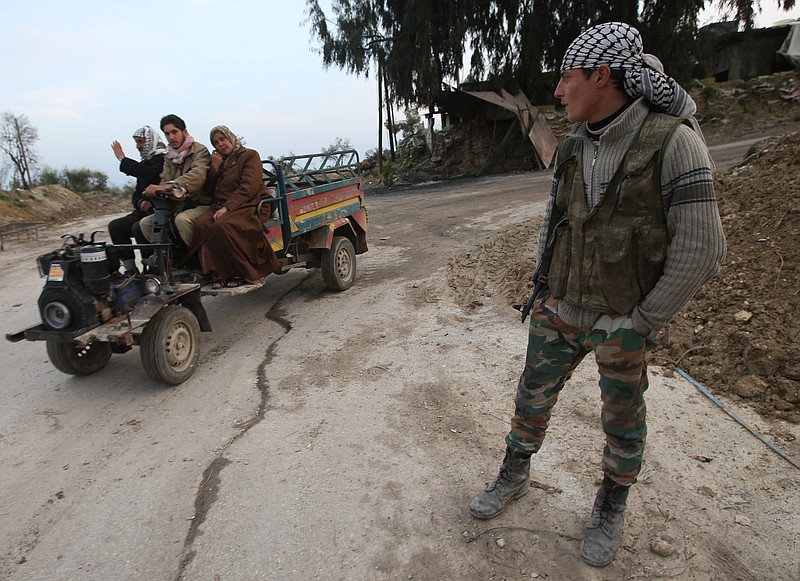BEIRUT (AP) - Gunmen from rival Sunni and Shiite Muslim villages in northern Syria have freed more than 200 people snatched in tit-for-tat kidnappings this month, easing tensions that threatened to touch off more sectarian violence, activists said Friday.
In Syria's largest city of Aleppo, three explosions that appeared to be caused by missiles killed at least 14 people, activists said, adding that dozens of others were feared to be trapped under the rubble of damaged buildings.
The wave of abductions in a rural part of Idlib province highlighted how much the civil war between the regime of President Bashar Assad and the hundreds of rebel groups seeking his ouster has enflamed tensions between Syria's myriad religious groups.
The Syrian regime, established more than four decades ago by Assad's father, Hafez, has largely stocked the upper ranks of the country's security agencies and armed forces with members of the ruling family's minority Alawite sect, an offshoot of Shiite Islam. Most of the rebels fighting Assad's forces are poor, rural members of Syria's Sunni majority. Other religious minority communities, like Christians and Druze, have largely remained on the sidelines.
As the conflict approaches its third year, its sectarian divide is worsening. This month, clashes broke out between Sunni and Shiite villages in the area of Qusair, near the Lebanese border. Islamic extremists who have joined the rebels have destroyed Christian liquor stores, and sometimes refer to their dead adversaries with derogatory names insulting their sects.
The Idlib kidnappings showed how quickly sectarian tensions can escalate, but also that local communities are still capable of pulling back from the brink.
Opposition activists say the abductions began Feb. 14 when a bus carrying dozens of Shiite civilians, mostly women and children, disappeared on the road to Damascus. Gunmen from the area's two Shiite villages, Fua and Kifarya, responded by snatching civilians from the Sunni villages nearby.
Some of the Sunnis were nabbed at makeshift checkpoints on rural roads, while others were taken while entering the provincial capital, which government troops still control. Many of the Sunnis captives, too, were woman and children.
"They started taking over buses from the opposition villages that were heading to Idlib city," said activist Hamza Abu al-Hassan from the village of Binnish. "Some of them had government jobs or had to file papers or were just going to visit their families."
The total number of those kidnapped remains unclear. Abu al-Hassan said they included about 35 Shiites and more than 250 Sunnis. Other activists gave higher figures.
It also remains unclear who hijacked the bus carrying the Shiite civilians. Local activists said no rebels claimed responsibility, possibly because the kidnappers were criminals seeking ransom or because the move was immediately criticized by opposition groups.

